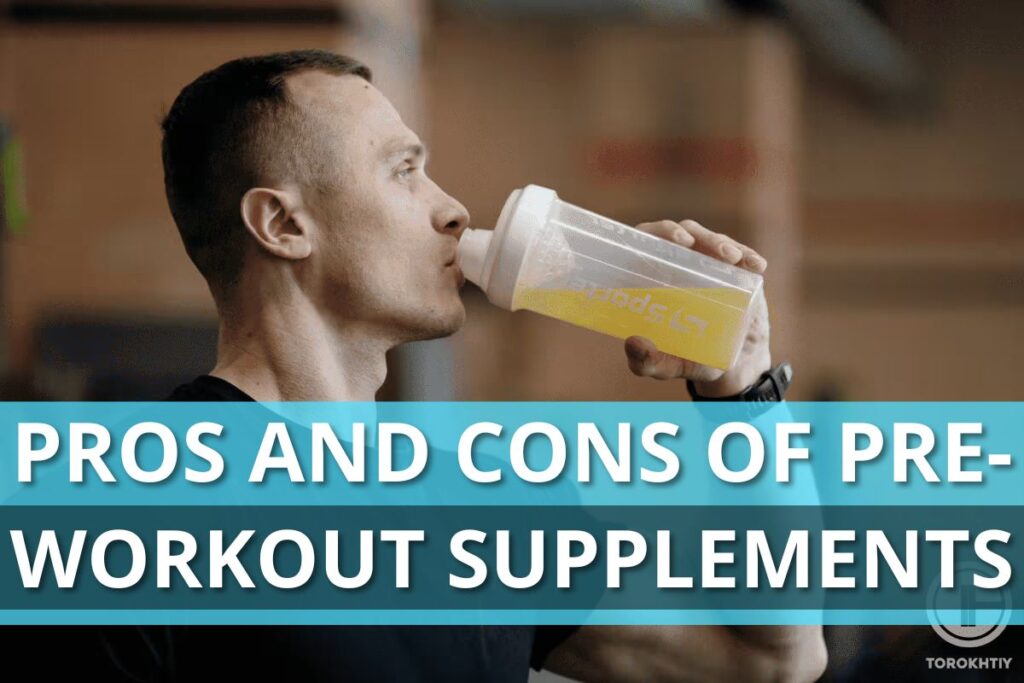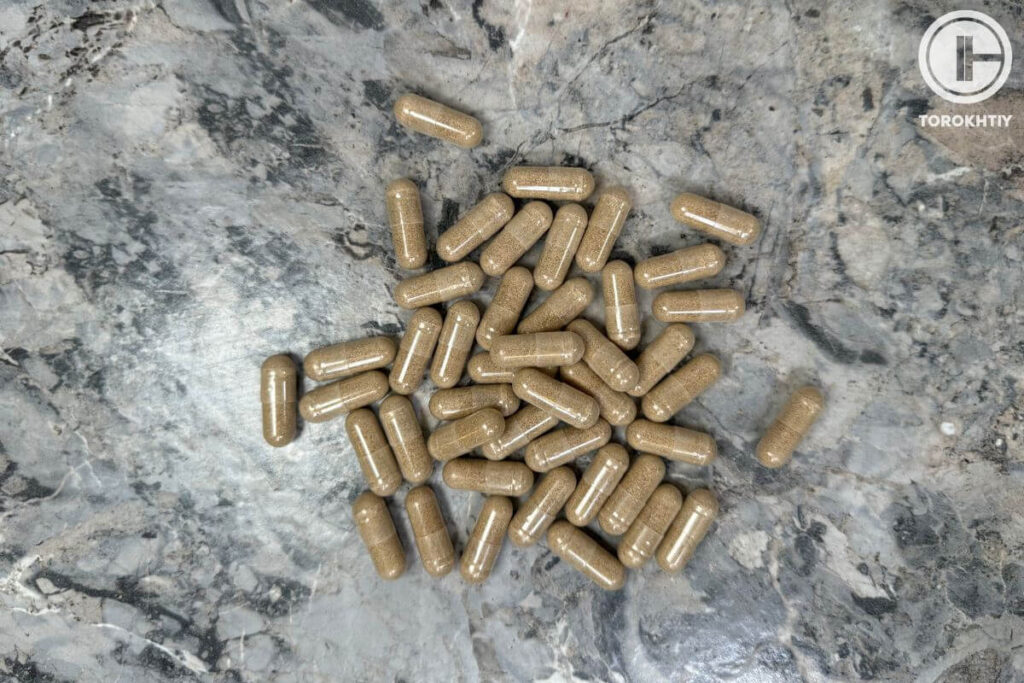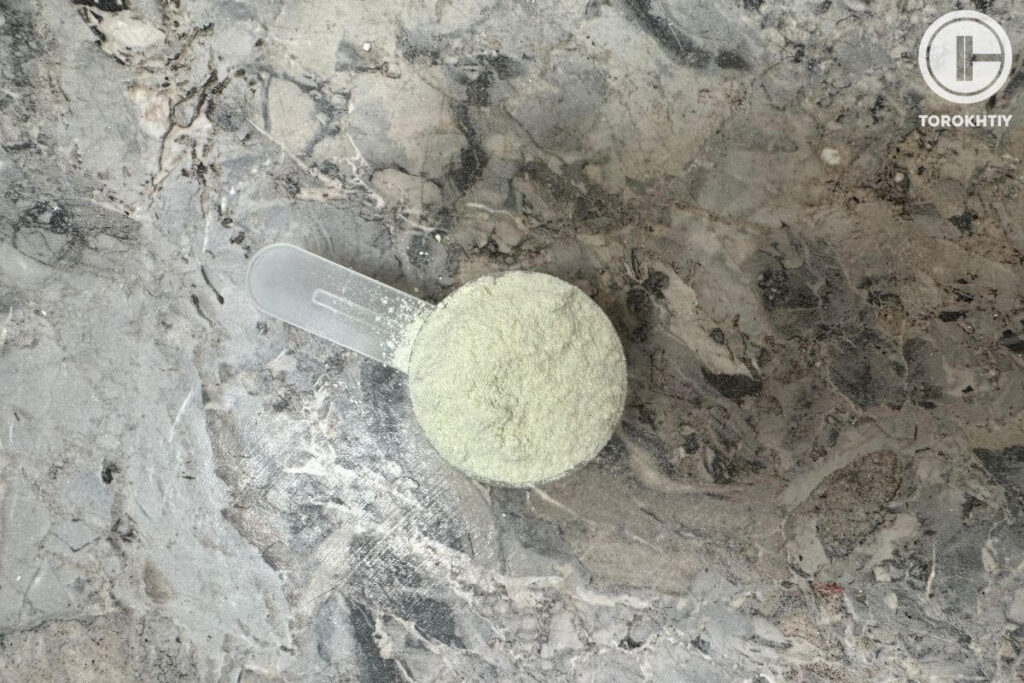PROs and CONs of pre-workout supplements
Author:
Unlock your full potential by engaging with our experts and community! Have questions about your fitness journey or looking for expert advice on weightlifting techniques? Don’t hesitate — leave a comment below and Sergii Putsov will provide a personalized answer and insights to help you reach your goals.
Torokhtiy is reader-supported. Some links are affiliate links, and we may earn a commission at no extra cost to you. See our disclosure page for details.

We all look forward to training harder, lifting heavier weights and getting stronger. So it is absolutely no wonder that many athletes use pre-workout supplements, which promise miraculous physical efficiency, in their effort to push themselves to the limit.
To estimate the degree of efficiency that pre-workout supplements have to offer, and, which is not less important – their safety, I suggest that we explore the summary of the scientific data from the Journal of the International Society of Sports Nutrition.
So what’s in there?
Pre-workout supplements are the blend of various ingredients. Most often it is caffeine, nitric oxide (L-arginine, L-citrulline), β-alanine, creatine, BCAA, separate amino acids (taurine, in most cases) and others. These supplements are able to give a significant boost to your physical efficiency on your today’s training as well as, in a matter of long-term usage, to improve your adaptive changes.

It’s rather interesting that caffeine accounts for the major part of physical uplifting effect. 3-6 mg/kg body mass caffeine dose rapidly absorbs into the bloodstream, reaches peak levels within 60 minutes after the consumption and provides a fair ergogenic effect. One serving of pre-workout supplements usually contains about 300 mg of caffeine, which is sufficient to reach such condition.
You may like it:
In a nutshell here I will explain the purpose of other ingredients that are included into pre-workout supplements:
- Taurine amino acid and/or BCAA. Consumption of 1,5 g taurine as a part of the pre-workout complex has shown the increment in strength endurance indices. BCAA are added to increase the synthesis and to decrease muscle protein breakdown, as well as to lower the damage done to muscle fibers. However, the considerable effect of BCAA intake on the athlete workability or muscle growth has not been proved yet.
- Nitric oxide (through L-arginine and L-citrulline amino acids) increases blood flow to the muscles involved in active work, which theoretically can influence positively the physical efficiency. L-arginine amino acid has direct impact on nitric oxide level, L-citrulline in turn converts into L-arginine and has vasodilatory effect. Yet, their dosage in pre-workout supplements is too low to provide such an effect.
- Creatine enhances the phosphocreatine storages in skeletal muscles and serves as a primary energy source during intensive speed-strength workout. At least 3 g creatine intake as a part of pre-workout complex increases your physical efficiency and adaptation to systematic strength trainings, if it is taken on regular basis for a long-term period.
- Beta-alanine helps you to do some extra reps. 4-6 g of this amino acid per day will improve your physical workability during high intense trainings. But you should take into account that the full advantage of beta-alanine will reveal itself during moderate or high-rep exercises (approx. 8 and higher). So most likely beta-alanine won’t provide any bonuses to weightlifters that usually work within 1-4 reps range.
The effectiveness of pre-workout intake from 10 days and more

- Strength. The long-term intake of pre-workout supplements definitely had a beneficial effect on indices of muscular strength.
- Pre-workout supplements do not affect power index. Too little research database considering this question exists nowadays, further investigation is to be done.
- According to the researches data pre-workout supplements intake resulted in significant muscle mass build-up and fat loss. However the positive effect on body composition was experienced only by men. Also these researches proved the effectiveness only with the pre-workout supplements that contained the combination of whey protein, creatine and BCAA.
Are pre-workout supplements safe and healthy?
According to the science data using pre-workout supplements is safe as long as you don’t exceed recommended dosage.
Keep in mind that sports nutrition has no strict regulations. That means that they could contain substances that are not listed in the supplement facts on the back side of the package, for example: a powerful stimulator (beside caffeine), or even some kind of banned substances.
Considering the costs of pre-workout supplements it doesn’t make any sense to me to spend money on them. It would be much wiser to get yourself a jar of creatine or caffeine. But the choice is yours, as it has always been. Just remember that good training program, sufficient healthy nutrition and sleep will surpass any supplement.
Also read:
Why Trust Us?
With over 20 years in Olympic weightlifting, strength training, nutrition coaching, and general fitness our team does its best to provide the audience with ultimate support and meet the needs and requirements of advanced athletes and professional lifters, as well as people who strive to open new opportunities and develop their physical capabilities with us.
By trusting the recommendations of our certified experts in coaching, nutrition, and sports training programming, as well as scientific consultants, and physiotherapists, we provide you with thorough, well-considered, and scientifically proven content. All the information given in the articles concerning workout programming, separate exercises, and athletic performance, in general, is based on verified data.
The product testing process is described in more detail here.
Author: Sergii Putsov
Head of Sport Science, PhD
Best Results: Snatch – 165 kg,
C&J – 200 kg
Sergii Putsov, Ph.D., is a former professional weightlifter and National team member, achieving multiple medals in the 94 kg weight category at national competitions. With a Master’s degree in “Olympic & Professional Sport Training” and a Sport Science Ph.D. from the International Olympic Academy, Greece, Sergii now leads as the Head of Sport Science. He specializes in designing training programs, writing insightful blog articles, providing live commentary at international weightlifting events, and conducting educational seminars worldwide alongside Olympic weightlifting expert Oleksiy Torokhtiy.




Still have questions after reading our article? Unlock your full potential by engaging with our experts and community! Don’t hesitate — leave a comment below and Sergii Putsov will provide a personalized answer and insights to help you reach your goals.